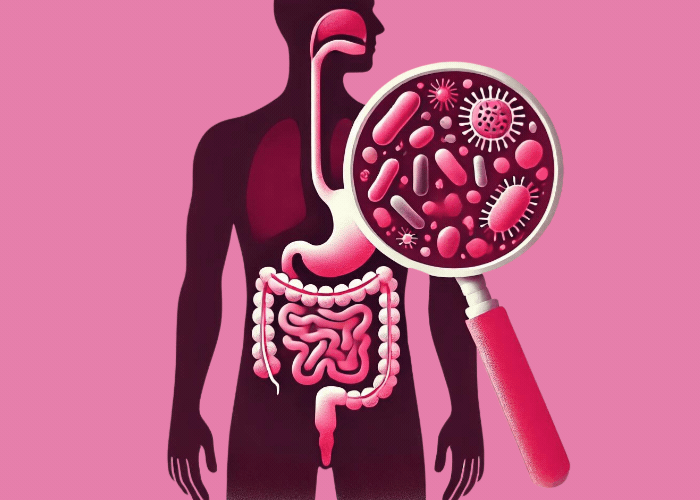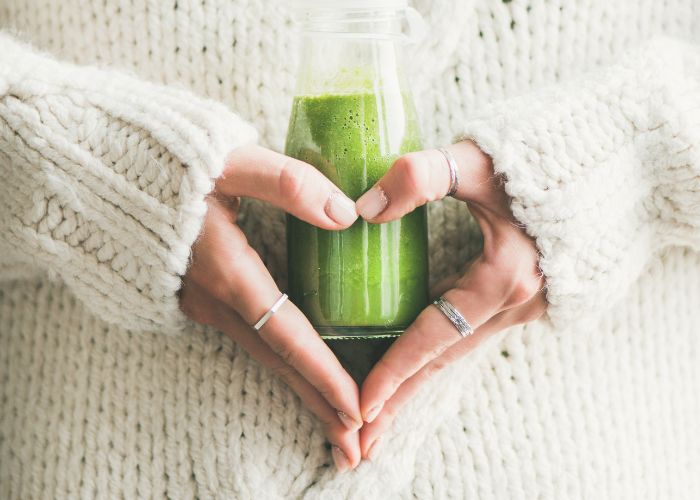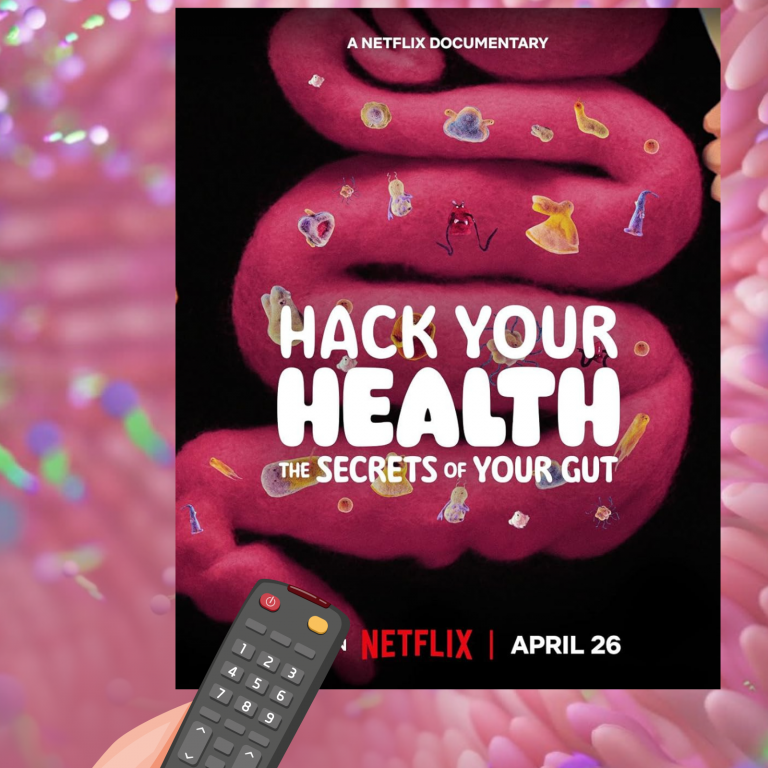
For those of you who have already seen the Netflix documentary, this blog post offers an in-depth look at of some of the documentary’s key messages. If you have not yet seen the documentary, the following insights may encourage you to check it out. Let’s take a closer look together at some of the most interesting aspects and statements from the documentary “Hack your Health“.
70 % of the immune system is found in the gut
"Bacteria train our immune system to react to harmful organisms."
The intestine has the largest mucosal surface area and all substances (food, fluids) enter the intestine several times a day and need to be controlled. Interestingly, 70% of all antibody-producing immune cells are located in the gut!
The better our microbiome, the better our immune system. The so-called dendritic cell of the immune system acts as a guard cell and is able to explore the intestinal lumen with its protrusions. If the dendritic cell encounters unwanted or harmful germs there, an immune reaction is triggered (inflammation). Good microbes give our immune system the green light, which drastically reduces the risk of allergies and autoimmune diseases.
Healthy diet = Colourful diet
"The key is to eat as many different types of plants as possible, in every form. Food for the microbes!"

The more colourful, the better!
A varied diet rich in different plant species serves as a food source for the microbiome, which promotes biodiversity. The more different types of bacteria, the more tasks they can fulfil in our body.
Diversity is, therefore, crucial for reducing the risk of diet-related diseases and improving overall health. We recommend at least 30g of fibre per day in your diet, but for most people this is not always achievable (at least not every day!). The good news is that you can also take a fibre supplement in the form of prebiotics to make up for a fibre deficiency.
"If you stop eating dietary fibre, the gut microbes will start eating the mucus lining as a backup food source."
Dietary fibre: vital for your intestinal bacteria
This statement is somewhat drastic. Only a few bacteria can harm the body and break down the important protective mucus layer. However, a low-fibre diet leads to a decrease in beneficial bacteria and an increase in bacteria that attack the intestinal mucosa and cause inflammation.
Fermented foods: the power of kimchi & sauerkraut
“Fermented foods are the original probiotics. They are full of different bacteria.”
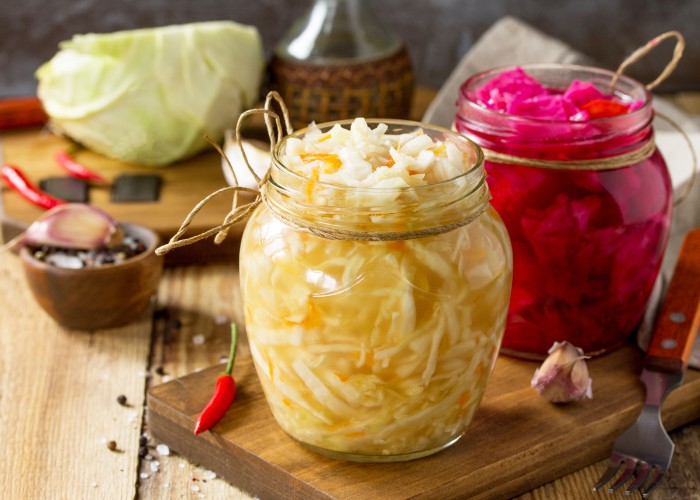
They are a source of natural probiotics. Fermented foods such as sauerkraut or kimchi can support diversity of the gut microbiome and improve digestion thanks to their live cultures. The fermentation process also makes these foods easier for us to digest and makes important nutrients more readily available to our bodies.
As with all foods, it is important to pay attention to quality and preferably buy natural and unpasteurised products. Or take the plunge and try fermenting at home!
Indication-specific probiotics
"Tailor-made probiotics can improve health in a very targeted way. Most over-the-counter probiotics do not contain strains of bacteria found in the digestive tract."
There are probiotics that consist of strains of bacteria that are also found in the human digestive tract. According to the FDA and WHO, probiotics are living microorganisms that provide health benefits to humans when administered in sufficient quantities. They can support the immune system, interact with other intestinal bacteria, strengthen the intestinal barrier and produce important enzymes. However, it is essential to pay attention to the quality and specific composition when selecting the right probiotic for you.
Babies are born without a microbiome
"We are born largely without a microbiome. They only colonize us after we are born."
It is true that newborns usually have their first contact with microorganisms at birth through the mother’s vaginal and intestinal flora. These first interactions are crucial for the development of a healthy microbiome. This first contact with the mother’s microbiome is missing if children are born by caesarean section.
The gut’s population of protective lactobacilli and bifidobacteria is correspondingly lower in caesarean section babies. This makes them more susceptible to regulatory disorders (such as colic), infectious diseases and allergies. However, maternal bacteria, for example, are also transferred to the child during breastfeeding (“entero-mammary pathway”).
Faecal transplantation: revolutionary therapy?
"What if someone else's stool could save your life?"
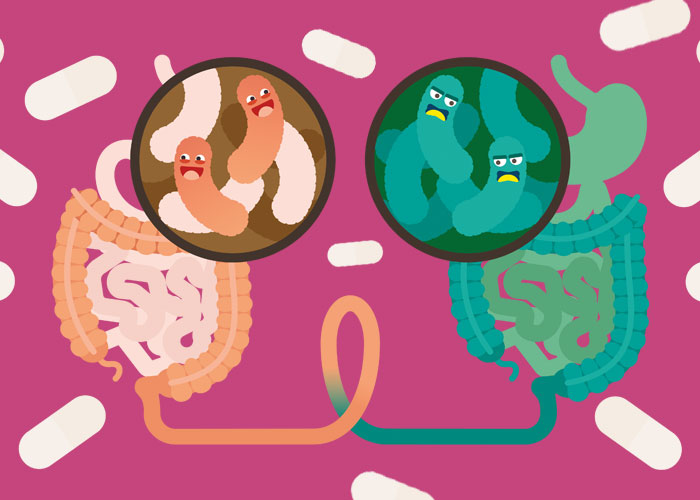
Stool transplantation is the first FDA-recognised microbiome therapy that doctors can use. It may only be performed under strict medical supervision in a clinical setting. Although it shows potential in the treatment of persistent Clostridioides difficile (formerly Clostridium difficile) infections, it is not without risks. Self-experiments such as those shown in the documentary, in which a woman swallows a capsule containing stool from her brother and partner, should definitely be avoided.
The use of medically relevant multispecies probiotics, which have a positive influence on the intestinal microbiome and can even suppress C. difficile and demonstrably reduce diarrhoea, has proven to be highly effective without side effects.
Our microbiome determines our weight
"When we see the calorie information on food packaging, we think: "That's the amount of energy that we get from the food." But of course that's not true."
In fact, food is utilised differently by each person and the amount of energy absorbed also varies.
Firmicutes and Bacteroidetes bacteria make up 90 % of the human gut microbiome and are therefore the most common groups of bacteria in the gut.
Their ratio influences the utilisation of ingested food. Firmicutes are efficient food utilisers. They can extract up to 10 % more energy from food, which in evolutionary terms was of great importance in the Stone Age. Fibre, which provides no calories and is excreted by our body, is converted by firmicutes into short-chain carbohydrates (i.e. sugar), which serve as an additional source of energy. In the Stone Age, this was important because it provided the body with more energy in times of need.
Today, when food is available in abundance for most people, the additional energy provided by Firmicutes bacteria can exceed the daily calorie requirement, which favours or further promotes weight gain or obesity.
Our conclusion
Our fact check shows that many topics addressed in the Netflix documentary are based on scientific findings but it is important to look at the information critically and rely on reputable sources.
A microbiome analysis you can have your intestinal bacteria determined and analysed using their DNA. This will tell you which bacteria live in your gut - or which important ones you may be missing.













